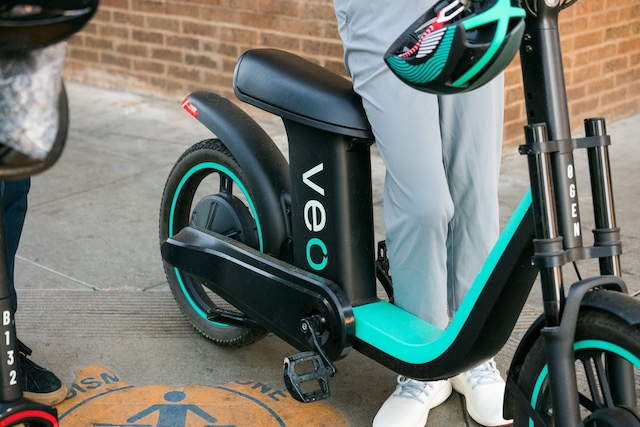Truckers ask Washington to change course on electric big rigs
Published 9:00 am Tuesday, August 20, 2024

- The Washington Trucking Associations warns the mandate to phase-in electric trucks will raise the costs of goods.
The Washington Trucking Associations asked lawmakers last week to reverse course and join states that have had second thoughts about following California in forcing manufacturers to sell electric freight trucks.
The group’s president and CEO, Sheri Call, wrote Gov. Jay Inslee, and copied legislators, to “raise the alarm” that the forced phase-in of zero-emission trucks will increase transportation costs.
Trending
“Artificially manipulating the market to mandate (zero-emission) truck sales will have a profound impact on the industry and lead to unintended consequences,” Call wrote.
Washington automatically adopts California’s tailpipe-emission laws, including one requiring 7% of heavy-duty trucks to be zero-emission beginning with 2025 models. The percentage will increase annually.
The Washington Department of Ecology projects the rule will reduce carbon emissions by 650,000 tons by 2040, or 0.6% of the state’s greenhouse gases in 2019, the most recent year Ecology has calculated.
Because Washington moves in lockstep with California, Ecology did not analyze how much complying with the rule will cost trucking companies or their customers, including farmers.
Besides Washington, nine other states, including Oregon, have adopted California’s truck rule, according to the U.S. Department of Energy. Nineteen states are suing to block the rule, fearing it will set a national standard.
Washington and Oregon have intervened in the lawsuit to defend the California rule. Three other states that initially intervened — Connecticut, Maine and North Carolina — pulled back last year from adopting the rule.
Trending
Call asked Inslee and Washington legislators to do the same. Zero-emission trucks cost more and haul less, and are impractical on some routes, according to Call.
Trucking companies will have to keep aging trucks in service or run fewer trucks, yielding business to out-of-state companies that don’t have to follow the mandate, she said.
“Imagine the negative impact to affordability in our state and to any environmental gains if trucks are dispatched to Washington from farther away,” the letter reads.
The trucking industry can achieve the requirements and the state will help, Inslee spokesman Mike Faulk said in an email Monday.
Manufacturers will get credit for zero-emission trucks they sold in previous years, and the state has committed more than $130 million from cap-and-trade revenue to help truck owners cover costs, he said.
“These regulations were thoughtfully crafted to make compliance feasible,” Faulk said.
States can either adopt federal or California tailpipe standards, but can’t set their own. California has special status because its smog-reduction laws predate the Clean Air Act.
The Environmental Protection Agency must approve California’s standards. The Biden EPA has been receptive to California using tailpipe rules to combat climate change. Each EPA approval draws a lawsuit from red states.
One lawsuit, over forcing the electrification of cars and pickups, has gone up to the U.S. Supreme Court. A majority of states, including Idaho, support overturning the rule, according to court briefs.
At issue is whether the Constitution’s Commerce Clause allows one state to have power denied to other states. The court has not decided whether to hear the case. The EPA has until Sept. 9 to answer the states’ petition.








